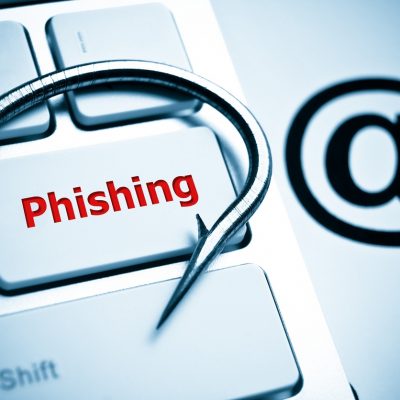How to protect yourself from phishing emails


In September 2022 Xplornet became Xplore. Read more here.
Xplornet | September 7, 2018
Wait. Did you say “fishing”?
Not this time, we didn’t. While pronounced much the same, “phishing” describes the unsolicited attempt to lure your personal and financial information through fake emails or other common communication tools, while “fishing” means…well, we don’t have to tell you about that.
From tech nerds to security professionals, with fraudulent emails getting more elaborate every day, these popular types of online scams can affect anyone and have been getting much more frequent recently. While online banking and e-commerce are generally safe, you should always be careful about sharing your personal financial information over the Internet in any other circumstance.
As the most common type of phishing scam, deceptive emails often pressure the recipient with a sense of urgency and a threat in order to scare them into sharing sensitive information with them. Those emails can look very close to a legitimate company correspondence which makes them hard to detect.
For example, you might receive an email that appears to be from your credit card company and instructs you to click on a link to verify your account information to resolve a discrepancy within your accounts. That link leads to a fake login page which then collects your credentials for the scammers.
To help you stay vigilant, we’ve compiled a list of things to watch out for to protect yourself from email phishing. Be skeptical of emails that:
- Start with generic greetings instead of your name;
- Have various obvious grammar or spelling errors;
- Are creating a strong sense of urgency;
- Ask for you to submit any kind of sensitive data (credit or debit card numbers, bank account information, driver’s license number, passwords or your full name)
- Tell you to click on a link, call a customer service number, or open attachments you never requested (which will likely install malicious software upon download).
If something doesn’t seem right about an email you received, don’t open it, reply to it, click on any links, or download any attachments. If it is an email that seems to be from your bank or any other institution familiar to you, call your representative directly or visit your local branch to ask if this email request is legitimate before you react to it in any way.
As an alternative, if you suspect an email is a scam, leave it for now and go fishing. Problems tend to solve themselves when you’re on a boat.


